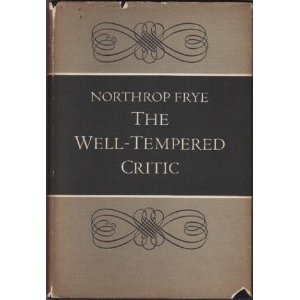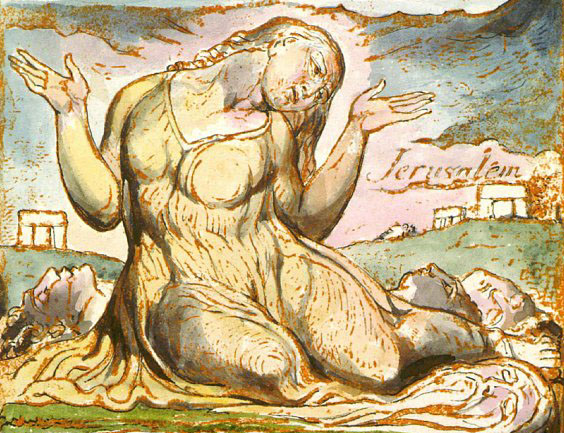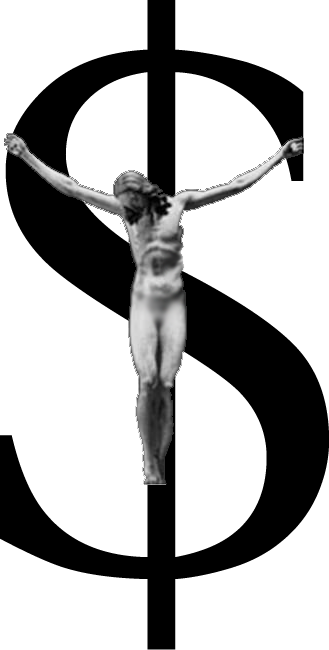
Michael’s recent posting of Sarah Palin’s latest free association on, er, whatever that guy’s name is, came to mind today as I was reading The Well-Tempered Critic, one of Frye’s undeservedly lesser known books. Frye’s discussion of the dangers of a bastardized use of language casts a glaring light on America’s ongoing descent into mental darkness. Characteristically, he approaches the problem from the perspective of education, language, and the imagination. What he has to say bears directly on the kind of “automatic gabble,” to borrow his phrase, that issues from the mouths of so many American politicians and pundits, this being the only verbal form that could possibly give expression to the mob mentality of the most recent incarnations of the American right-wing. His insights clarify, in particular, ongoing debates about freedom of speech, and what that freedom actually demands of us as members of a free and democratic society.
To set the context, Frye points out that “rhetoric from the beginning has been divided into three levels, high, middle, and low,” “originally suggested by the three classes of society,” but which Frye suggests should be used in a way that dispenses with “the misleading analogy of social classes” and “some of the metaphors lurking in the words ‘high’ and ‘low’.” The middle style is “the ordinary speaking style of the articulate person,” and “its basis is a relaxed and informal prose, that is, prose influenced by an associative rhythm.” This is “the language of what ordinarily passes for thought and rational discussion,” Low style is “a colloquial or familiar style,” which Frye believes “should be regarded simply as a separate rhetorical style, appropriate for some situations and not for others.” High style, he observes, is, conventionally, more often identified with its literary form, those moments of the sublime associated, for example, with “great passages in Shakespeare or Milton.” But in ordinary speech it “emerges whenever the middle style rises from communication to community, and achieves a vision of society which draws speaker and hearers together into a closer bond. It is the voice of the genuine individual reminding us of our genuine selves, and of our role as members of a society, in contrast to a mob.” It is “is ordinary style, or even low style, in an exceptional situation which gives it exceptional authority.”
Frye, typically, illustrates his argument at one point with a number of historical allusions appropriate to the time (the book was published in 1961): he refers, for example, to Joseph Welch, the man whose spontaneous and impassioned eloquence abruptly ended the career of Joe McCarthy. The insights, it is safe to say, are just as resonant and illuminating with reference to our contemporary scene:
Genuine speech is the expression of a genuine personality. Because it takes pains to make itself intelligible, it assumes that the hearer is a genuine personality too—in other words, wherever it is spoken it creates a community. Bastard speech is not the voice of the genuine self: it is more typically the voice of what I shall here call the ego. The ego has no interest in communication, but only in expression. What it says is always a monologue, though if engaged with others, it resigns itself to a temporary stop, so that the other person’s monologue may have its turn to flow. But while it seeks only expression, the ego is not the genuine individual, consequently it has nothing distinctive to express. It can express only the generic: food, sex, possessions, gossip, aggressiveness, and resentments. Its natural affinity is for the ready-made phrase, the cliche, because it tends to address itself to the reflexes of its hearer, not to his intelligence or emotions. I am not suggesting that society can do without a great deal of automatic babble on ready-made subjects: I am merely saying that we limit the aspects of our personality that we can express with words if we devote ourselves entirely to such verbal quackery. (CW 21, 351)
*
But of course freedom has nothing to do with lack of training. We are not free to move until we have learned to walk; we are not free to express ourselves musically until we have learned music; we are not capable of free thought unless we can think. Similarly, free speech cannot have anything to do with the mumbling and grousing of the ego. Free speech is cultivated and precise speech, which means that there are far too many people who are neither capable of it nor would know if they lost it.
A group of individuals, who retain the power and desire of genuine communication, is a society. An aggregate of egos is a mob. A mob can only respond to reflex and cliche; it can only express itself, directly or through a spokesman, in reflex and cliche. A mob always implies some object of resentment, and political leaders who speak for the mob aspect of their society develop a special kind of tantrum style, a style constructed almost entirely out of unexamined cliches. Examples may be heard in the United Nations every day. What is disturbing about the prevalence of bad language in our society is that bad language, if it is the only idiom habitually at command, is really mob language. (352)
*
High style in ordinary speech is heard whenever a speaker is honestly struggling to express what his society, as a society, is trying to be and do. It is even more unmistakably heard, as we should expect, in the voice of an individual facing a mob, or some incarnation of the mob spirit, in the death speech of Vanzetti, in Joseph Welch’s annihilating rebuke of McCarthy during the McCarthy hearings, in the dignity with which a. New Orleans mother explained her reasons for sending her white child to an unsegregated school. All these represent in different ways the authority of high style in action, moving, not on the middle level of thought, but on the higher level of imagination and social vision. The mob’s version of high style is advertising, the verbal art of penetrating the mind by prodding the reflexes of the ego. As long as society retains any freedom, such advertising may be largely harmless, because everybody knows that it is only a kind of ironic game. As soon as society loses its freedom, mob high style is taken over by the new masters, to become what is usually called propaganda. Then, of course, the moral effects become much more pernicious. Both advertising and propaganda, however, represent the conscious or unconscious pressure on a genuine society to force it into a mass society, which can only-be done by debasing the arts. (353)
*
Except in the nonverbal arts, like mathematics or music, there are no wordless thoughts, nor can any genuine ideas be expressed in undeveloped speech or writing. The undeveloped associative rhythm can only reproduce the associative process: by itself it can never express thought, much less imagination. What it can express, and effectively, is hatred, arrogance, and fear. This makes it a considerable danger at a time when, though some of us are afraid of science, we hive so much less to fear from science than from a misuse of words. However uninhibited, it is not free speech, and at a time when most of us feel rather helpless about how much we can do in the world, free speech is the one aspect of a genuine society that we all hold in our hands, or mouths. What the critic as a teacher of language tries to teach is not an elegant accomplishment, but the means of conscious life. Literary education should lead not merely to the admiration of great literature, but to some possession of its power of utterance. The ultimate aim is an ethical and participating aim, not an aesthetic or contemplative one, even though the latter may be the means of achieving the former. If free speech is cultivated speech, we should think of free speech, not merely as an uninhibited reaction to the social order, a release of the querulous ego, but as the verbal response to human situations, a response which establishes a context of freedom. The subliterary associative response is antisocial; the cliche or accepted idea response is a symptom of social stagnation; the free response, when verbal, is one participating in the lucidity of prose and the energy of verse. (353-354)





